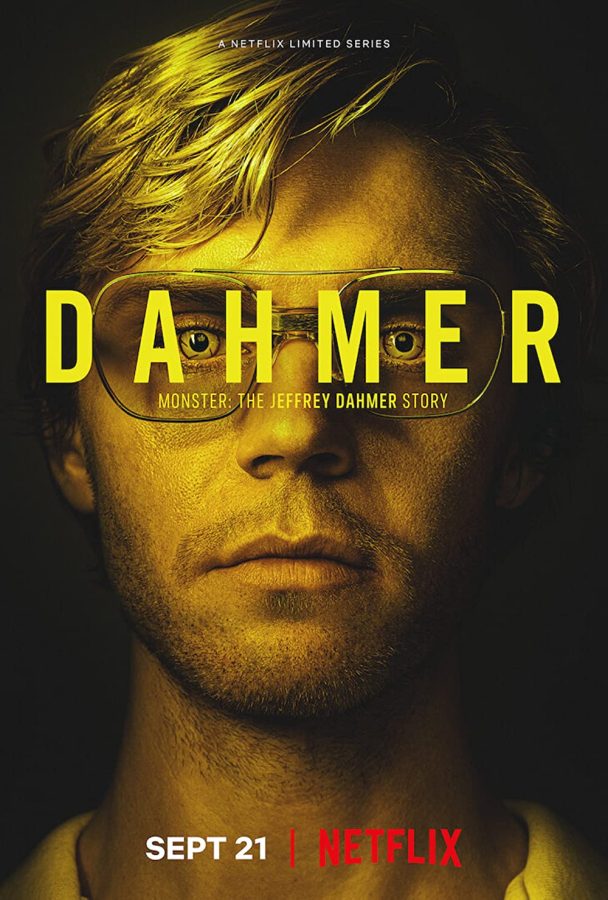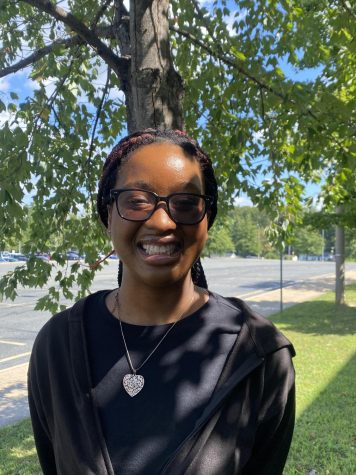Dahmer-Monster: The Jeffrey Dahmer Story Review
October 19, 2022
From the mind of the man who directed Glee and American Horror Story, Ryan Murphy’s newest project Dahmer-Monster: The Jeffrey Dahmer Story has brought him both controversy and critical acclaim.
The show, which is available on the streaming platform Netflix, stars Evan Peters as the serial killer Jeffrey Dahmer, to show how events in his life brought him to commit these terrible acts. It also explores the incompetence of the police and how they brush off encounters with Dahmer numerous times.
While The Jeffrey Dahmer Story gave us an incredible acting performance from both Even Peters as Dahmer and Nicey Nash, who plays Glenda Clevland, Dahmer’s neighbor who reported him on many different occasions to the police. It ultimately fails to show how the families were affected by the horrid crimes. The show mainly focuses on the serial killer fighting his internalized homophobia.
This show was frustrating and difficult to watch. Seeing the families of Dahmer’s victims grieve over lost loved ones was heartbreaking, and watching how the cops let him slip through their fingers had me wanting to turn off my TV multiple times.
The most devastating and heart-wrenching scenes in the show had to come from episode six titled Silenced. The show takes a break from depicting Dahmer’s gruesome violence to show the tragic story of one of his victims, Tony Hughes.
Tony was a deaf, gay, black man who had a dream of being a model. He moved to Madison, Wisconsin in hopes of finding a job before meeting Dahmer at a local bar. From there, we see Tony and Dahmer find an unexpectedly genuine connection. Throughout the episode, we see them go on many dates, which reveals a more loving side of Dahmer.
This episode beautifully depicts Dahmers need for human connection and willingness to love. Rodney Burford gives an amazing performance as Tony and really conveys the seemingly loving relationship they had.
Finally, at the end of the episode, Dahmer murders Tony with an axe and commits a vile act of cannibalism.
Even though this ending was inevitable, it still shocked me to the point I had to quickly look away from my TV screen. It was dreadful to see how close Tony’s family was to him and watch as his sister and mother grieve for him.
Episodes like this should have been the focus of the show instead of clumsily shifting between Dahmer’s childhood and adulthood for an hour. This was also a common problem in Ryan Murphy’s other project, Versace, which also seemed more like a bio-pic for Versace killer than a crime show.
Before watching the show, I had semi-high hopes for Ryan Murphy’s ability to write a compelling and thought-provoking crime drama as he did with The People v. OJ Simpson, but it was soon let down after watching this heart-wrenching show.




Le’Taysha • Oct 20, 2022 at 12:45 pm
I totally agree!